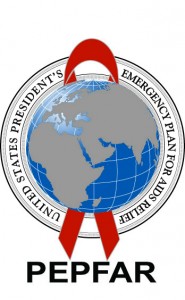PEPFAR and MCC Partner to Create Local Data Hubs
 This is a guest blog post from the U.S. President’s Emergency Plan for AIDS Relief
This is a guest blog post from the U.S. President’s Emergency Plan for AIDS Relief
Sharing and using reliable data is essential for improving international development programs and holding donors and partners accountable for impact. That is why the principles of data quality, transparency, participation and collaboration are at the heart of efforts by the United States (U.S.) to make information about its foreign assistance investments and the results of those investments available, accessible, and easy-to-understand. Data transparency is an area where the Millennium Challenge Corporation (MCC) has long been a leader and the U.S. President’s Emergency Plan for AIDS Relief (PEPFAR) has demonstrated significant and innovative improvements. Reflecting this commitment, PEPFAR and MCC made another leap forward in data transparency and use through a new partnership unveiled on World AIDS Day 2014 to advance efforts by the U.S. government and partner countries to ensure data openness and transparency in the global HIV/AIDS response.
The $21.5 million partnership, announced by U.S. Secretary of State John Kerry, will increase country engagement, as both programs will work with country governments to conceptualize and establish country-based, country-driven data hubs to improve strategic planning, investments, quality of care, and ultimately, health outcomes. These hubs are envisioned as places where data on health and other areas critical to controlling the HIV/AIDS epidemic, such as economic development and gender, will be organized, analyzed and made more accessible for use by citizens and potential donors. The hubs could also encourage ongoing collaboration with the local public sector, civil society, private sector groups, and others who use the data.
The partnership provides a unique platform to leverage the individual strengths of PEPFAR and MCC in pursuit of common goals –transparency, accountability, sustainability, and impact. MCC is a world leader in data transparency, ranking among the world’s top three most transparent aid organizations in Publish What You Fund’s 2014 Aid Transparency Index (ATI). The 10-year-old agency has extensive experience setting up multi-stakeholder, accountable and country-led entities driven by the use of evidence and data, and it puts a premium on sustainability by emphasizing country engagement and capacity building. PEPFAR has led the way on data for impact and recently made public an unprecedented amount of data on program results, quality and expenditures. PEPFAR also has been recognized for its advancements in data transparency on the 2014 ATI. The program is strongly committed to publishing useable data with the launch of the PEPFAR Dashboards to enable stakeholders to easily view and use data to improve programs. These dashboards also include results data broken down by age and/or sex, making it easier to understand the program’s impact and to change effectively the data landscape around HIV in women.
This collaboration provides an important opportunity for PEPFAR and MCC to engage more closely with and contribute to partner countries and local civil society capacity under the framework of PEPFAR’s Country Health Partnerships. Since the high-level panel on the Post-2015 Development Agenda called for a data revolution, the buzz around the transformative power of data for development is resounding. Still, a lot must happen for data’s transformative power for development to be harnessed fully. PEPFAR and the MCC are committed to working with partners to realize the power of data for development and bring us closer to delivering an AIDS-free generation and a healthy future of greater economic growth and opportunity.

